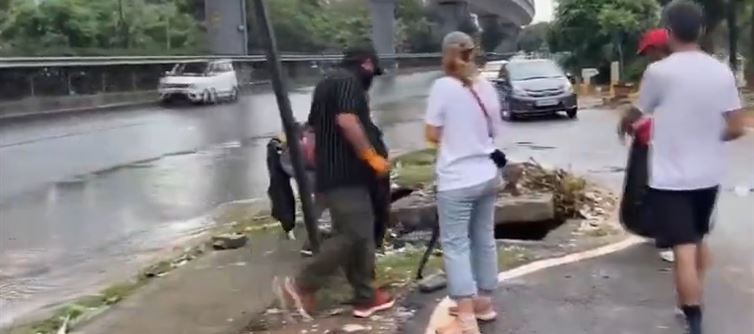
Something ironic unfolded in Gurugram — foreign nationals, alongside locals, organized a cleanliness drive to scrub roads and drains. The same foreigners whose ancestors once taxed indians before 1947 are now voluntarily cleaning our streets, while the government that taxes us every single day in 2025 can’t even keep them garbage-free. Here’s the irony broken down:
1. Foreigners Taxed Us Then, Clean for Us Now
Before independence, foreigners extracted wealth from India.
78 years later, their present-day counterparts are literally scrubbing our drains.
Meanwhile, our tax-funded civic machinery snores on.
2. Gurugram’s ‘World-Class City’ Needs Foreign Volunteers
Gurugram loves to brand itself as a global city with skyscrapers, IT parks, and luxury condos.
Yet, it takes foreigners with gloves and garbage bags to do the basic job of cleaning roads and drains.
Truly a “global city” — where locals pay taxes, foreigners do the cleaning.
3. government Collects, Citizens Sweep
From GST on toothpaste to tax on petrol, citizens cough up money daily.
But when it comes to basic cleanliness, the government’s role is limited to Twitter campaigns and photo-ops.
Actual cleaning? Left to citizens and, hilariously, foreigners.
4. Swachh Bharat, But Only in Ads
Remember the big slogans, jingles, and celebrities holding brooms for photo shoots?
On the ground, it’s foreigners and locals actually filling the gap.
Swachh Bharat seems more like Swachh Photo-Op Abhiyaan.
5. The Real Shame
Instead of feeling proud that foreigners are “helping,” this should be a national embarrassment.
The government that charges us taxes, cesses, and surcharges should be ensuring clean streets — not outsourcing the job to volunteers.
If foreigners can find time to clean our drains, why can’t our tax-funded system manage it?
Bottom Line
The image of foreigners cleaning Gurugram is both inspiring and humiliating. Inspiring because it shows the power of civic responsibility. Humiliating because it exposes a government that’s more interested in collecting taxes than delivering services.




 click and follow Indiaherald WhatsApp channel
click and follow Indiaherald WhatsApp channel